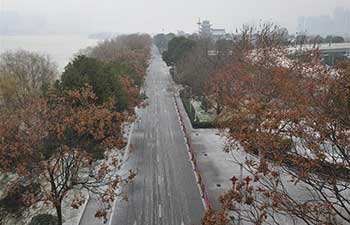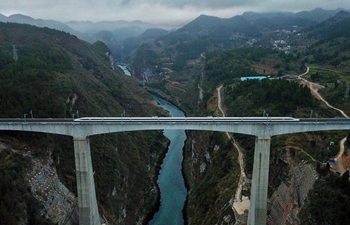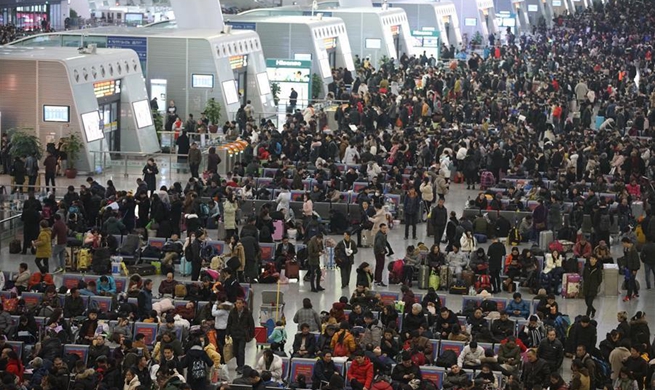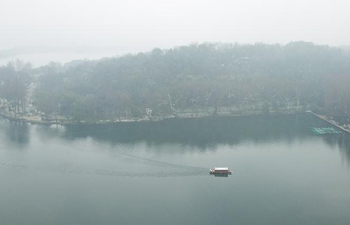DHAKA, Jan. 26 (Xinhua) -- The Asian Development Bank (ADB) expects more cooperation with the Asian Infrastructure Investment Bank (AIIB) in future co-financed projects and other related areas to boost the development of the Asia-Pacific region, a top official of the Manila-based lender said here.
In a recent interview with Xinhua at the ADB resident mission in Dhaka, its Vice President Zhang Wencai said, "I'm quite confident that in the future we will explore more projects for co-financing between ADB and AIIB."
The AIIB is an international financial institution that mainly aims to support the building of infrastructure in the Asia-Pacific region and beyond. Moody's Investors Service last year gave the China-initiated institution its highest possible rating, with a stable outlook.
Zhang said that since 2016, ADB and AIIB had co-financd four projects, including Bangladesh Natural Gas Infrastructure and Efficiency Improvement Project.
"And other three projects are a highway project in Pakistan, a road project in Georgia, and a power transmission network project in India."
In sectors like transport, energy, and urban and rural infrastructure there are many opportunities for the two institutions to work together, Zhang added.
Apart from co-financing more projects, he said, "Also we can exchange ideas, experiences and knowledge in many fronts."
Zhang said the two institutions already signed a memorandum for cooperation in 2016.
"I can say high-level discussions between the two banks have been quite pragmatic," he said, adding "both of us concentrate very much on the development of Asia and the Pacific. We share a lot of common interests in the region."
"So certainly I'm quite confident of further cooperation in the future."
He described the Asia-Pacific region as dynamic, with many countries now requesting support to develop the private sector, address the climate change and promote regional cooperation and integration.
To meet the needs, ADB needs to innovate its financing instruments and operations and further enhance its efficiency and effectiveness to better support its clients in achieving sustainable development goals, and moving towards more knowledge-based and innovation-based economies, he said.
"Infrastructure needs, together with climate change mitigation and adaptation costs, in developing Asia and the Pacific will exceed 26 trillion U.S. dollars from 2016 to 2030, or 1.7 trillion dollars per year, if the region is to maintain growth momentum. So we need to think how we can support these countries' efforts for more inclusive and sustainable growth in the coming years."
"We need to work together with development partners such as AIIB, and private sectors to support the region's development. Public-Private Partnership will play a more important role than before," he said.
The vice president said ADB was preparing its strategy 2030 to align itself with the changing needs in the Asia-Pacific region.
Meanwhile, Zhang said countries like Bangladesh have great potential.
"How we can help them for the domestic development and the cooperation and integration with other countries in the region is very important."
He said ADB and Bangladesh have been enjoying very good partnership since 1973.
"Until 2017, ADB has provided over 20 billion U.S. dollars of assistance for the country."
In 2017, he said, ADB provided about 1.9 billion U.S. dollars of loan and guarantee to Bangladesh.

















